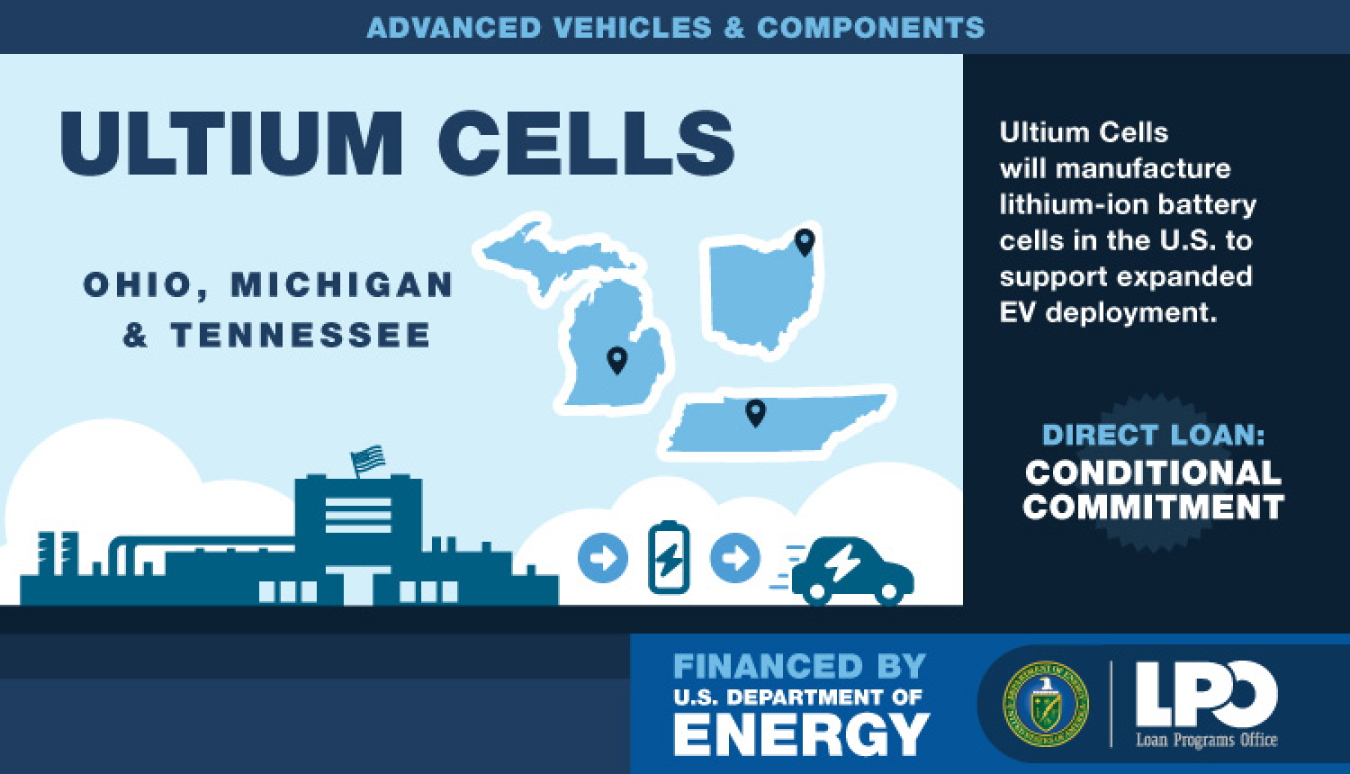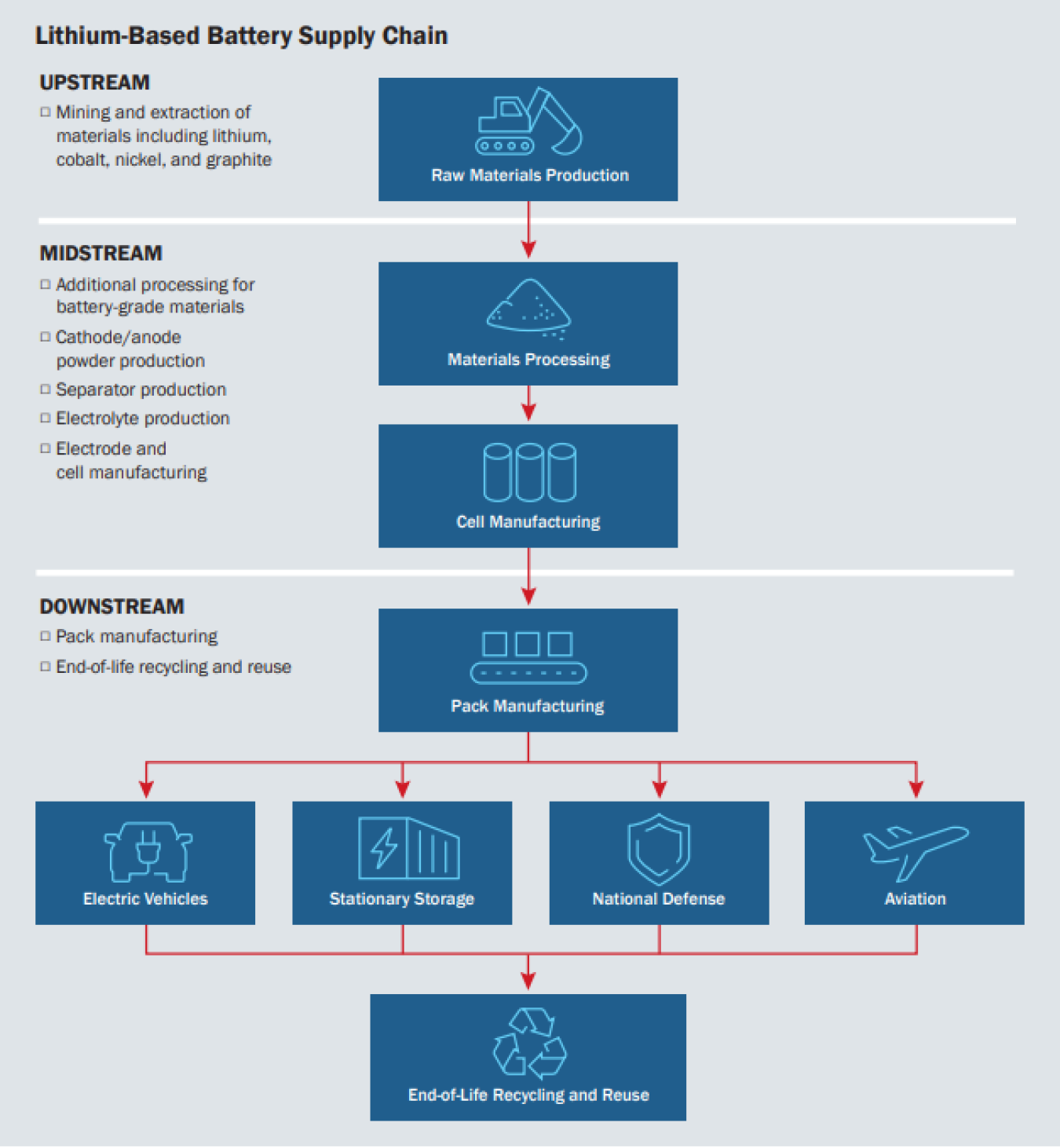Today the Department of Energy’s Loan Programs Office (LPO) announced a conditional commitment to Ultium Cells LLC for a $2.5 billion loan to help finance the construction of new lithium-ion (Li-ion) battery cell manufacturing facilities in OH, TN, MI
Office of Energy Dominance Financing
July 25, 2022
Today the Department of Energy’s Loan Programs Office (LPO) announced a conditional commitment to Ultium Cells LLC for a $2.5 billion loan to help finance the construction of new lithium-ion (Li-ion) battery cell manufacturing facilities in Ohio, Tennessee, and Michigan. The three facilities are expected to create 6,000 good-paying construction jobs and 5,100 operations jobs when they are at full capacity. LPO works with all borrowers to create good-paying jobs with strong labor standards during construction, operations, and throughout the life of the loan and to adhere to a strong Community Benefits Plan.
LPO is offering the conditional commitment through the Advanced Technology Vehicles Manufacturing (ATVM) program, which provides loans to support U.S. manufacturing of light-duty vehicles, qualifying components, and materials that improve fuel economy. This would be LPO’s first loan exclusively for a battery cell manufacturing project under ATVM. Financing from the ATVM program complements the historic investments secured by the Biden-Harris Administration in the Bipartisan Infrastructure Law – $7.5 billion for EV charging infrastructure and more than $7 billion for the critical minerals supply chains necessary for batteries, components, materials, and recycling.
By manufacturing Li-ion battery cells for EV battery packs in the United States, Ultium Cells will supply GM as it works to deliver its plan to eliminate 100% of tailpipe emissions from its new light-duty vehicles by 2035. To support the goal of a zero-emissions future, GM plans to install capacity to build one million EVs in North America by the end of 2025. Construction of these three plants also supports GM’s plan to make its global products and operations carbon neutral by 2040.
The cells manufactured by Ultium Cells LLC are large format, pouch-type cells that use a state-of-the-art nickel-cobalt-manganese-aluminum (NCMA) chemistry to deliver more range at less cost. The cells can be arranged in different combinations of flexible modules and battery packs to provide the energy for every segment on the road today, from performance vehicles to work trucks.

This latest conditional commitment comes at a time when the EV market is expected to grow substantially in the coming years. According to BloombergNEF, plug-in vehicle sales are expected to grow from 6.6 million in 2021 to 20.6 million in 2025. The rising demand for EVs increases the need for EV batteries, with BloombergNEF forecasting demand to exceed 580GWh in America by 2030.
LPO is supporting the National Blueprint for Lithium Batteries, which offers a vision for the United States and its partners to establish a secure battery materials and technology supply chain that supports long-term economic competitiveness in America and enables equitable job creation and decarbonization.
As electric cars and trucks continue to grow in popularity within the United States and around the world, we must seize the chance to make advanced batteries — the heart of this growing industry — right here at home.
While this conditional commitment demonstrates the Department’s intent to finance the project, several steps remain, and certain conditions must be satisfied before the Department issues a final loan.
Media inquiries should be directed to doenews@hq.doe.gov. Potential applicants should email LPO@hq.doe.gov.


